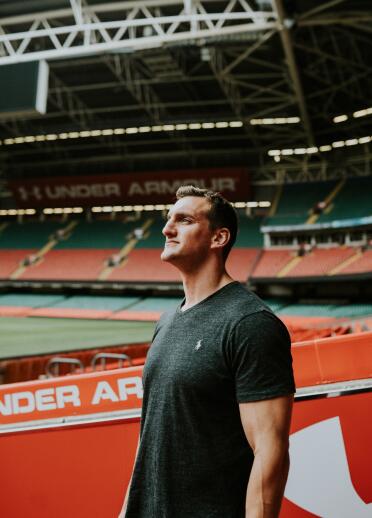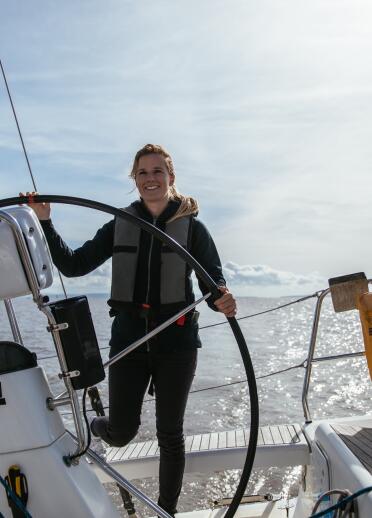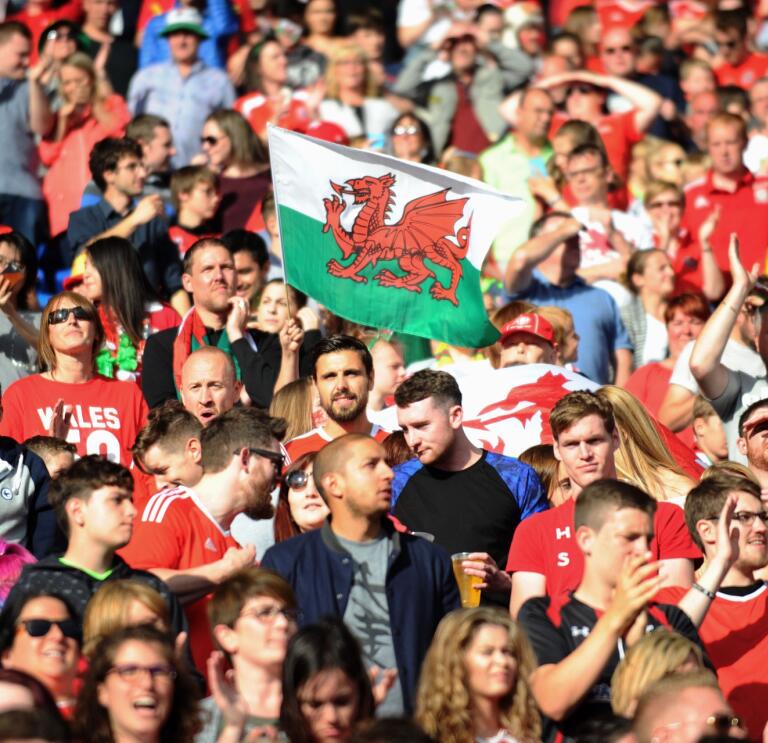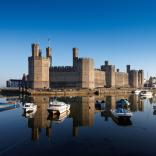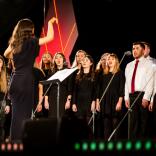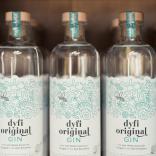Every Welsh person above a certain age knows the feeling. You’d be travelling abroad, and someone asks, ‘So where are you from?’ Not so long ago, the answer “Wales” needed to be backed up with a lengthy explanation.
It had all changed by the time I went to the 2022 World Cup in Qatar. You’d say “Wales” (or better still, “Cymru”) and people would break into a smile. ‘Ah, the best singing in the World Cup, the loudest anthem, the most passionate fans! We love the colours and the bucket hats!’
All of that might sound minor. But make no mistake, it’s hugely significant. In Qatar, our flag flew proudly from every building and every street alongside Brazil’s, Argentina’s and Germany’s. Everyone knew exactly what Wales was all about.
That’s the power of sport, and especially football. We’re pretty handy at rugby and plenty of other sports, too, but football is a truly global phenomenon. The scale of the World Cup is simply immense. The nearest comparator might be the Olympics — but Wales doesn’t compete as an independent nation there.
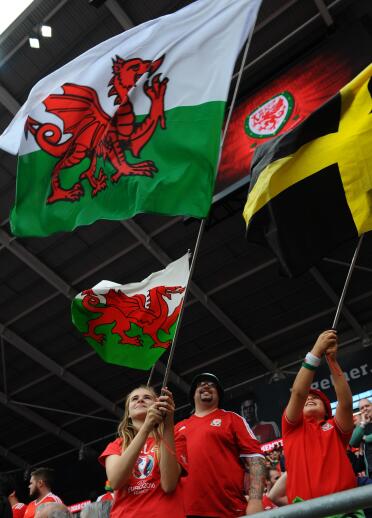
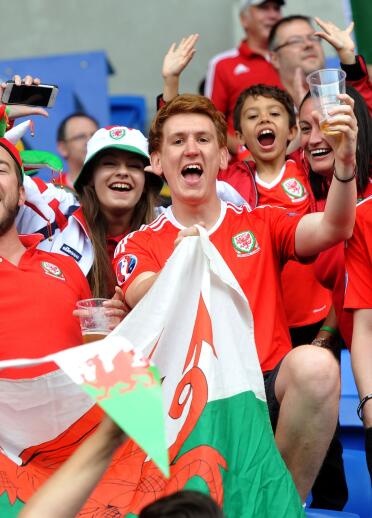
In the Olympics, we compete as part of Team GB — representing the wider United Kingdom. It’s the same in most political and economic spheres. We don’t get a seat at the United Nations or World Trade Organisation, where we’re represented indirectly as part of the UK.
But football … that’s another story. Founded in 1876, the Football Association of Wales (FAW) is the third oldest national association in the world. Wales is a full member of UEFA and FIFA, which lets us rub shoulders with football’s powerhouse nations.
We do it on our own terms, too. The FAW now uses the Welsh word (Cymru) for its team, instead of Wales — a small but important detail. Cymru football has set the pace with its modern, inclusive personality. The nation has embraced the tangible connection between our fans and the men’s and women’s teams.
A shift in identity has been paralleled by our performance on the pitch. In 2011 we were ranked by FIFA a lowly 117th in the world. By 2015 we’d risen to 8th. In 2016 we qualified for our first ever Euros, became the darling participant (that’s everyone’s favourite second team), before eventually being knocked out in the semi-finals by Portugal, who went on the win.
And then in 2022 we made it to a World Cup for the first time since 1958, the smallest nation to qualify. Cymru kicked off its first group game against the USA, a country of 331 million people, then played Iran (population 86 million) and England (56 million). Our flag, our anthem, our ancient language, our country of just over three million people were under the world’s gaze.
It wasn’t all plain sailing. Several Cymru fans (including me) were asked to remove our rainbow bucket hats while queuing to enter the stadium for the USA v Wales match. On the positive side, the massive global attention that followed means the world knows where we in Cymru stand on this issue. We are a proud, diverse nation with a commitment to inclusivity and the rights of every citizen. And now the whole world knows that.
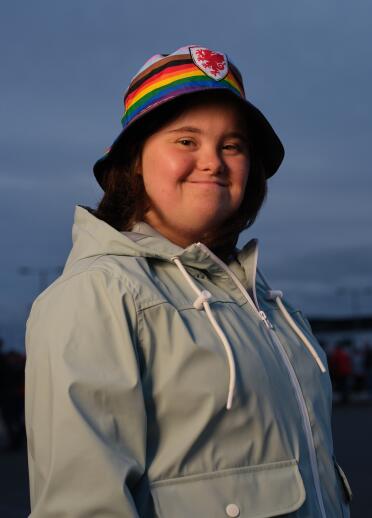
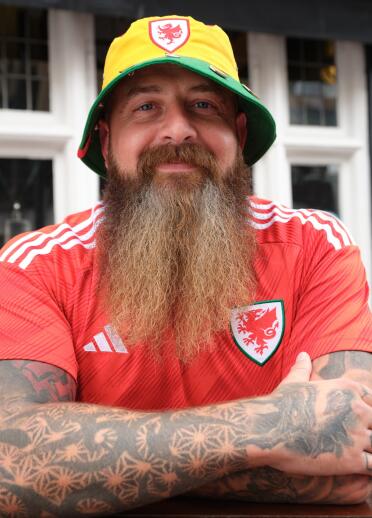
And there’s a whole lot more that we can tell the world, while we’ve got their attention. Sport showcases our nation’s values and sense of global responsibility. It generates opportunities to engage with people all around the world. It builds the informal networks that create and strengthen formal and official relationships.
Sport is a way of telling people about our long history and national identity. Our bilingualism and our proud, ancient language. Our magnificent natural landscape with its vast tourism potential, our green and well-being credentials, and our music, poetry and wider culture.
We’re projecting an image of Wales that’s a modern, positive one. We’re welcoming the world to Wales to trade, holiday, invest and study.
From our World Cup stars to our gold-medal-winning Commonwealth, Paralympic and Olympic athletes, our sportspeople are our best ambassadors. They represent all that is good about Wales. They communicate values like excellence, family, humility, and friendliness - with a touch of fun and flair too, of course.
Sporting diplomats
Although now retired from international football, Gareth Bale is still the most recognised Welsh person on the planet. He led the most successful Welsh side in history, yet they still looked like a bunch of mates having fun in the park.
Footballer Jess Fishlock has had a stellar career in Europe, the US and Australia. She continues to inspire young people worldwide, using her voice as a powerful advocate for the LGBTQ+ community and women’s leadership in sport.
Tour de France winner Geraint Thomas is one of the most likeable cyclists in the elite peloton, and now co-hosts a popular podcast with his fellow Ineos Grenadier and Cardiff boy Luke Rowe.
Former Welsh rugby skipper Sam Warburton also captained the British & Irish Lions on two tours to New Zealand and Australia. He’s now a successful TV pundit and rugby writer.
The most successful female Olympic sailor of all time, Hannah Mills used her sporting success as a platform to campaign on the big issues of climate change and plastic pollution.
